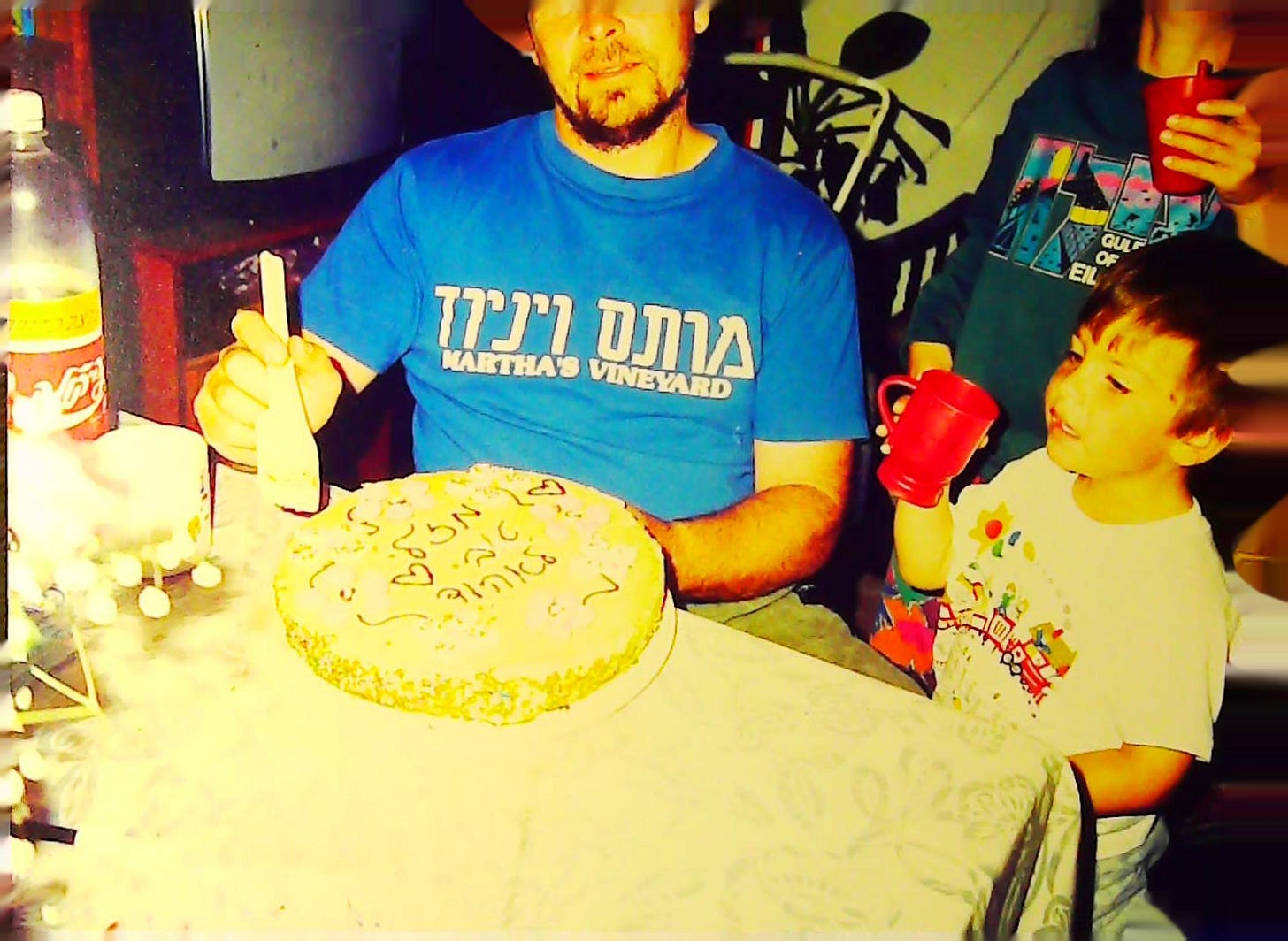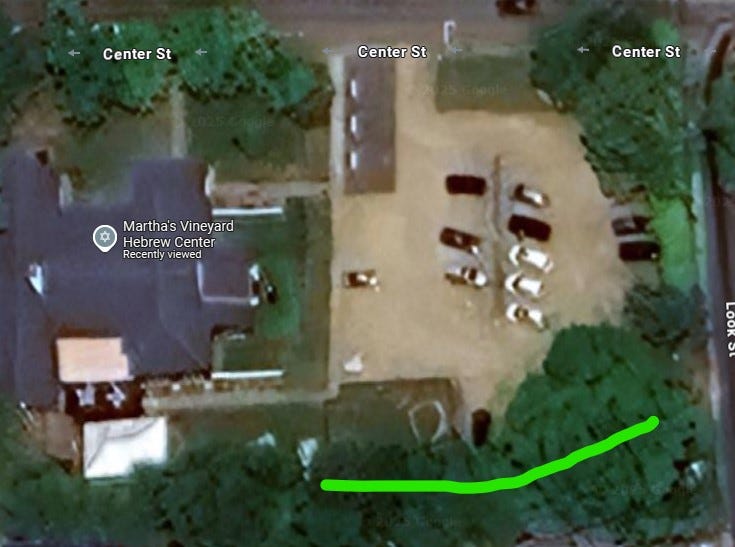Martha's Vineyard, Sandy Koufax, and the Golan Heights

Sometimes a coincidence occurs. It is unexpected. It breaks the natural flow in our lives, it surprises us. We are brought to a sudden stop, even if for a few fleeting moments, and we take note. It is interesting to us. It is something that points towards a connection that is part of a larger design, of which we are only dimly aware. The greater the incongruity of the ends that meet, the more the design is felt. And then, usually, it is gone. Sometimes though, it leaves an impression.
One such impression was traced for me by the track of the International Space Station. If you look at one of the websites for tracking, such as ISSTracker, and track along the path when it is over Martha’s Vineyard, farther on during the same orbit the station will fly over Israel. On YouTube there are several streaming sights that show video of the Earth from the station. When I first looked into this about ten years ago, the camera that was streaming from the space station was pointing port and aft from the station—southwest—when it passed over Martha’s Vineyard, and east when it was passing Israel. It may have been a different camera but over the next few months, whenever the station passed over Martha’s Vineyard, about a half-hour later it was over Israel. I liked to think that it was an affirmation of the arc of my life, from childhood on Martha’s Vineyard to adulthood in Israel.


At the beginning of my life in Israel, there was little that reminded me of the Vineyard. As I matured, however, little sparks of connections began to appear. For example, the was a particular t-shirt that was sold in only one gift-shop on Martha’s Vineyard—my mother’s shop—with “Martha’s Vineyard” printed on it in English and in Hebrew. Imagine my surprise when I encountered a young couple wearing this shirt while at a crosswalk in Jerusalem. So strange to me at the time! Not only was that a direct connection with my childhood home, but it was also a direct connection with my mother, because when I queried the couple as to who made the actual sale to them, they described the woman who had raised me on that island so far away that it seems logical that it would take a space station to transfer me back to it. Had I lingered a little while longer before reaching that crosswalk, I would have missed the connection.
During the ensuing years it seemed as if these “connections” began to snowball. I would later learn that the Jewish population of Martha’s Vineyard was growing rapidly. Some of those Jews had an affinity for Israel and some had friends or relatives in Israel and so it came to the point where I grew accustomed to seeing Black-Dog shirts on the streets and trails of Israel, and on the other end my mother would see a yarmulke on a head walking down main street in Edgartown or hear someone speaking Hebrew and she would try to sell them the Hebrew MV T-shirt. Later I would learn that there was another Vineyarder living in the north of Israel working as a tour guide.
While growing up in Vineyard Haven, when we didn’t have enough players to populate a normal baseball field, like the one at the elementary school, we would play on the sand lot next to the old Hebrew Center. It’s where the parking lot is today. At the end of the lot there was a slight rise with a hedge that was the perfect home run fence. We had our own Fenway Park Green Monster.
We were at the age when a well-hit ball would land before the hedges and roll up to the rise. Anything that hit the hedges without a bounce was a home run. There were only two of us who were long-ball threats: Robert Trebby and Gerry Issokson. Gerry was one of a handful of Jews at Tisbury Elementary School. He was the one who later, in high school, introduced us to Lenny Bruce. Having endured years of him trying to wean us from the Three Stooges in favor of the Marx brothers, we geared ourselves to endure, once again, for that is what friends do. By the way, it turns out that Larry, Curly and Moe were observant Jews, and would not start filming each day until they had donned their phylacteries and said their morning prayers. Woop woop woop! (I cannot find the original link where I read that many years ago. If you find it, please add it to the comments below). So, Gerry puts on a scratchy LP containing a scratchy recording of Lenny Bruce drunk or high or both, and he's laughing like a maniac at every punch line. We're smiling, trying to laugh at something we don't understand--trying to humor the humorist--and are too ashamed to admit that it's all beyond us (except the profanity). Gerry, a loyal friend, took us on as students of the revolution. He began to stop the record here and there to explain what we were hearing.
Lenny, depressed, sits down at his regular spot in the local Chinese restaurant.
Waiter: "Hewo Mr Broose. How wife and kids?"
Lenny: "She left me."
Waiter: "You betta off!"
Now Gerry's howling at this every time he plays it. He made hard eye contact with us and tried to explain: "You see, the waiter is just asking without really giving a crap, and when Lenny tells him that his wife left him, the waiter tells him what he really thinks. Or he does give a crap and tells him both times what he thinks Lenny wants to hear, which changes with the circumstances. Or then again, he doesn't give a crap and tells him both times what he thinks Lenny wants to hear, soothing words that a paying customer would expect.”
Multiple layers of meaning. Profanity on stage. Authority in question. Those scratchy LPs with Gerry's commentary had it all. Thanks to Gerry, we were getting the real stuff. A real education. Later I would understand that one of the greatest gifts that the Jews gave America in return for America's unprecedented tolerance of them was Jewish humor. Intelligent, witty, sometimes insulting, sometimes even high art, the Jews offered to their American audience the fruits of hundreds of years of Yiddish culture, one of the great cultures to have existed on this earth. Laughing at other's pain was not foreign to the gentiles. Laughing at your own pain--or in the face of your own pain--in short, laughing at yourself, but also, elegantly, laughing at your audience in a way that as soon as the audience becomes aware of it they also become aware of the fact that everyone is laughing together now at this crazy funny world. This Yiddish humor can only be born of supreme self-confidence (or over-inflated ego, some might say). That same self-confidence led to Jewish success in many areas of American life, such as medicine, jurisprudence, business, and education. And in all of those successes, there were gentiles watching and learning. Once, it was as embarrassing to see a Wasp give an in-your-face yiddisher sales pitch as it is to watch a white person trying to act as a black person. Today it is almost expected.
And the upsurge of Antisemitism? It almost seems as if Americans think that they have learned all there is to learn from her Jews, and that the Jews’ welcome is worn out.
Now long before Gerry incited us to rebellion, he educated us in something closer to home, back on the baseball diamond next to the Hebrew Center. He taught us about Sandy Koufax, the great left-handed pitcher of the LA Dodgers. Now we knew Koufax in baseball terms: he would win 20 games a season with scores like 1-0. His team couldn't score runs at all; they were pitiful at bat. We respected Koufax, because he was an excellent baseball player. Gerry respected him because of that too, but he respected him more because he was that and he was Jewish. What pride he took in that man! Yes! You could be a proud Jew and a grade-A American too. We loved baseball with all our hearts, but we had never seen a reverence for the game such as the reverence Koufax inspired in Gerry. He had his moves down pat, his trademark all-body stretch and in the end, Gerry became an almost unhitable pitcher too. We were afraid of that wind-up. Who could concentrate on the ball?
By the time the Dodgers reached the World Series in 1965, with Koufax already an ace of aces, we were primed. Koufax was scheduled for the opener. A sure win. And then he refused to play. What! Why not? What do you mean, Yom Kippur? We turned to Gerry, and he was embarrassed to have to explain this bit of Jewish folklore to us. If a star of the stature of Koufax could refuse to pitch because he wanted to go to Jewish church, then where would it end? But slowly we came around. Yeah, Koufax needed to honor the traditions of his people. If he did not, then where would it end? Koufax went on to win two games including the seventh game (while injured, no less) and the Dodgers won the series.
One day back at the Hebrew Center lot we had sides chosen and Gerry had taken the mound. Then his mother called him from down the street. "Gerry! Bar-Mitzva lessons!" We froze and looked at Gerry. He gave us a look and we understood that he had no choice. We looked on with the reverence that he himself had instilled in us as he slowly left the mound and walked home to honor his people's traditions. We felt the larger for it.
A few years back my wife and I were spending a Shabbat weekend with her school at a hotel on the Golan Heights. The administration did these get-togethers once a year and Dvora and I liked them. At each meal we would sit with different people and get to know them. This time, we sat with the Schneids, an American couple from Netzer Hazzani, another settlement in Gush Katif. The Schneids were among the first families in Gush Katif, moving there about ten years before we arrived at our settlement of Gan Or. We knew of each other while in the Gush, but as our towns were at opposite ends of the Gush, we did not socialize. So here we were on the Golan Heights a few years after having been evicted by our own government from Gush Katif, finally getting to know one another. I asked them where they were from in the States, and Haim said Connecticut, and we went on talking about farming and his kids (remarkably successful: two boys pilots in the air force, a daughter doctor). Dvora was talking with his wife Raz about school, where she had also been a teacher for many years. Finally, I asked Raz where she was from, and she said New Bedford. I looked at her and said, "I didn't know there were Jews in New Bedford." It was the first time that I was able to ask the question that everyone asked me whenever I told them where I was from: "Oh, I didn't know there were any Jews on Martha's Vineyard," they would ask. I would answer: "Oh there are, but I wasn't one of them when I lived there." Raz continued: "I don't know if there are any at all there now, and there were few when I was growing up, but my father was the Rabbi, and we stayed until there was less than a minyan (10 Jewish males above age 13)." Then she asked where I was from and I told her and immediately tagged on: "I bet you didn't think that there were any Jews on Martha's Vineyard, right?" She was shaking her head before I finished. "Of course I knew. My father used to take the boat over to prepare the boys for their Bar Mitzva." I looked at her, not knowing what to say. I was back at our makeshift ballpark next to the Hebrew Center. Sitting there on the Golan Heights I could see Gerry walking home, head held high, going to learn his Torah portion with Raz Schneid’s father.




I enjoyed the personal touch Ehud. I was a little too late for Koufax. Do not forget the legend of Kenny Holtzman the lefthander from University City Senior High School who graduated to be recruited by the Chicago Cubs as a pitcher managed by Leo Durocher. I am thinking of "Field of Dreams"--you build it they will come. Thank-you for your story.
Isn’t there a Chabad on Marthas Vineyard now? Very recent, i think. A young couple.